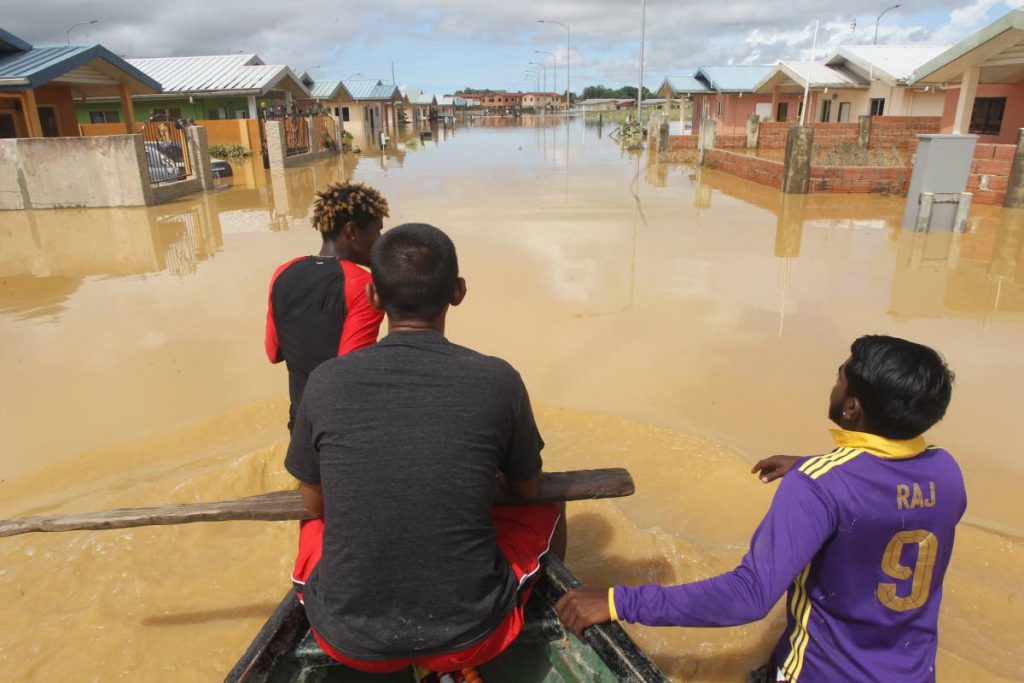'Time to get moving'

Trinidad and Tobago is still recovering from last month’s devastating floods that, aside from causing massive displacement and destruction, has also highlighted this country’s lack of urgency in implementing mandated national building codes.
“In TT there is an absence of a framework, where all the people who are charged with safety need to be involved in creating and disseminating best practices. Unfortunately, the thing that drives us to change is impact,” head of the UWI Seismic Unit Dr Richard Robertson told the audience at a recent panel discussion on health, safety, security and environment (HSSE) in the building and construction sector. The discussion was part of a wider conference on HSSE hosted by the American Chamber of Commerce (Amcham).
“Politicians respond to public pressure. Now maybe since this (flooding) event, it might sensitise people and policymakers and put some of these issues to the forefront. Unless there’s a consistent call from the public for it to happen it will become another nine-day wonder,” added Darren Thomson of the TT Bureau of Standards (TTBS). The public also has to understand that improved safety and resilience will be more expensive.
The TTBS is one of the de facto agencies that is supposed to monitor building codes, and even publishes a small building code that the public can use as a guide when constructing personal residences, for example.
Building codes have come to the fore recently after the 6.9 magnitude earthquake in August, and now, flooding. Trinidad has no formal legislation for building codes, so contractors are not obligated to follow them. Many self-regulate, and adhere to the international building code model, or else follow established codes in places that have developed their own codes for certain natural disasters, like the California code for earthquakes and Florida for hurricanes. While its better to have some code than none at all, these foreign codes are created specifically to deal with the hazards of the places they are enforced, including weather and climate, and may not be completely applicable to our situation.
And while the country is weak in terms of legislation, it is even weaker in enforcement.
“We need to identify this is where we are and go forward what is reasonably practicable," said Thomson.
TT has the technical capability to do create a unique building code, but falls short on being able to actually implement, execute and ensure it’s being followed. Aside from the legal and administrative considerations, the current pay scale in the public sector means attracting talent is sometimes tricky.
Sufficient consideration is also not given to the natural environment, Robertson suggested.
“I suspect what happens in planning, the impact of natural hazards on the environment is not a key factor, as opposed to say, proximity to other developments, especially when they happen around flood plains,” he said. Developers and engineers also need to work out what the threat is—in the Caribbean there is the obvious risk for hurricanes, flooding, earthquakes, and even volcanic eruptions, but less so on, say tsunamis. Every engineering student in the Caribbean should take a natural hazards course, he said.
What’s more, these concerns are not new. Robertson remembers feeling the same sense of concern at a symposium hosted by UWI Seismic Unit nearly a decade ago. “I thought we had more or less understood how vulnerable we were, but when I heard the way engineers from the public and private sector were talking I got scared. That was crazy. We need to start moving. There is no reason we cannot live sustainably in TT given the hazards that can impact us. We understand them enough. The problem is we aren’t doing it,” he said.
It’s political will, or lack thereof, to an extent, he said, but individuals and professionals need to take some responsibility. “Nobody is doing anything because they don’t want it to come back to them, but we need to take responsibility. We have to push the agenda that we live in a region that is impacted by multiple hazards and we don’t take that into enough consideration,” Robertson said.


Comments
"'Time to get moving'"